'A large number of people from Sindh province will now opt to migrate to India as they would be granted citizenship through an easy process.'
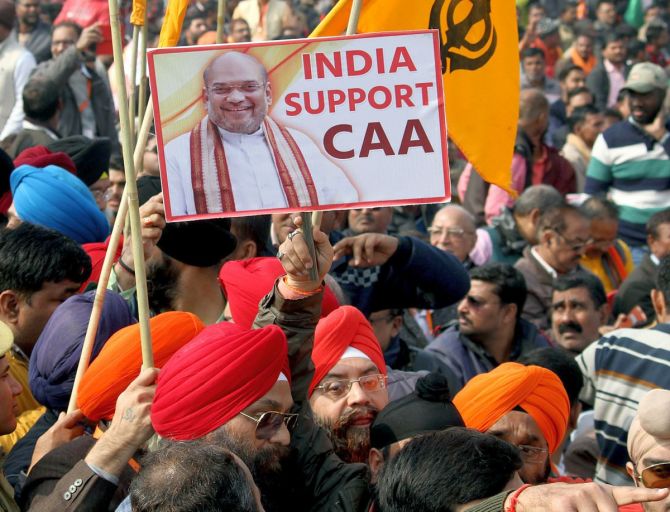
Ramchand Bheel along with Majna Bheel and Rewat Ram had enjoyed a few drinks after hearing about the announcement by the Union home ministry on the Citizens Amendment Act (CAA).
The migrant group ordered for a few thailis (pouches) of country liquor to celebrate the announcement.
There was jubilation in Chokha Gangna in Jodhpur where the Hindu migrants from Sindh province of Pakistan were living in temporary structures.
The Pakistani migrants celebrated the announcement by lighting earthen lamps and also by smearing each other's faces with gulal used during the Holi celebration.
The CAA came as a godsent announcement not only for those migrants living in Aanganwa Refugees Settlement (ARS), Chokha Gangna, Soorsagar, Kali Beri and Dali Ka Mandir areas of Jodhpur, but also in various districts of western Rajasthan.
The CAA announcement would mean that some 35,000 Hindu migrants from Sindh province would now be able to get Indian nationality.
It was a season of celebration for the Hindu migrants when the Union government notified the Citizen's Amendment Act (CAA) that would pave the way for granting citizenship to the migrants who have been living in various parts of the state.
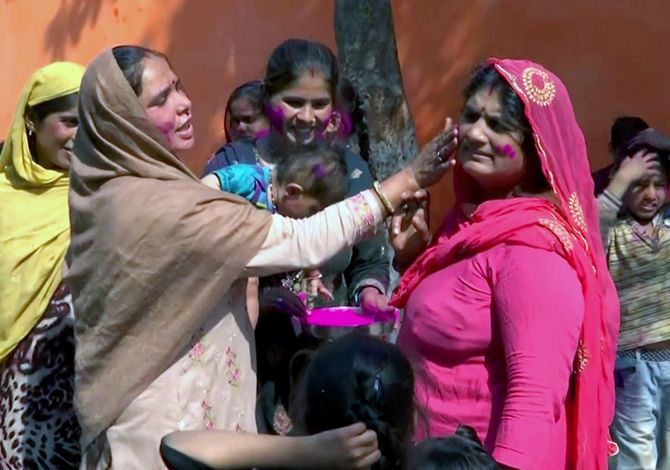
After the partition of India in 1947, many Sindhi Hindus were among those who fled from Pakistan to the dominion of India, in what was a wholesale exchange of Hindu and Muslim populations in some areas.
The Hindu population of Sindh living in the coastal areas left their homes and took boats to Bombay and Gujarat.
Others came by train to Jodhpur and from there the Sindhis spread to various parts of the erstwhile Rajputana and Gujarat and Madhya Pradesh.
According to the 2017 census, 4.18 million Sindhi Hindus are residing within the Sindh province of Pakistan with major population centres being Mirpur Khas and Hyderabad division that account for more than 2 million of them.
Meanwhile, the 2011 census listed 2.77 million speakers of Sindhi in India, including speakers of Kutchi, a number that does not include Sindhi Hindus who no longer speak the Sindhi language.
"The migrations from Pakistan of the Hindus started after the 1965 war when the borders in Barmer, Jaisalmer and Khajuwala in Bikaner were also Porus. A very large number of migrants crossed over to India in three phases in 1965, 1971 and after that. The two wars of 1965 and 1971 saw a large number of Hindus crossing over to India as they found that living in Sindh province was not safe for them," said Hindu Singh Sodha, a leading activist who headed the Seemant Lok Sangathan, the frontal organisation of the migrants who fought for Indian citizenship.
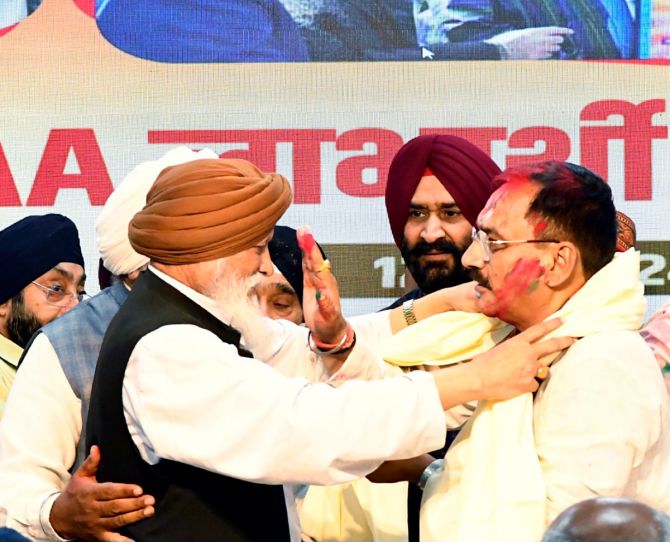
Sodha is himself a migrant who crossed over to India after the 1971 war and later studied at Jai Narayan Vyas Jodhpur University and took over the task of getting the migrants justice by way of grant of Indian citizenship.
"The migrants from Pakistan were granted Indian citizenship in three phases and such migrants have made India as their new homes and are living in Jodhpur, Jaisalmer, Barmer, Sriganganagar, Bikaner, Udaipur, Pali, Jalore etc and they are all mostly Dalits.
"Some eight lakh Sindhis migrants crossed over to India in 1971 after the Indo-Pakistan war. It is estimated that after the 1971 war some 90,000 Hindus migrated to India and settled down here and some five thousand of them died in the past half a century.
"The number of such migrants has grown with the newborn. But over 35,000 such migrants are awaiting citizenship and leading very hard and tedious lives with no citizenship. They are treated as second-class citizens and they cannot be enrolled under the Aadhar card and are not eligible for various benefits provided to the BPL families." Said Sodha.
Sodha has been fighting for the cause of the migrant Hindus and feels that the migrants from Pakistan deserved a better and humanitarian deal, however, the CAA would give them all that they deserved over the years.
Sodha informed that the migrants from Sindh who shared cultural similarities with Marwar fitted themselves in their new home easily and mingled with the local culture and society.
Sodha also informed that the largest number of such migrants are located in Barmer district where their number is about three and a half lakh.
In Jodhpur district the number could be 70,000 to 80,000.
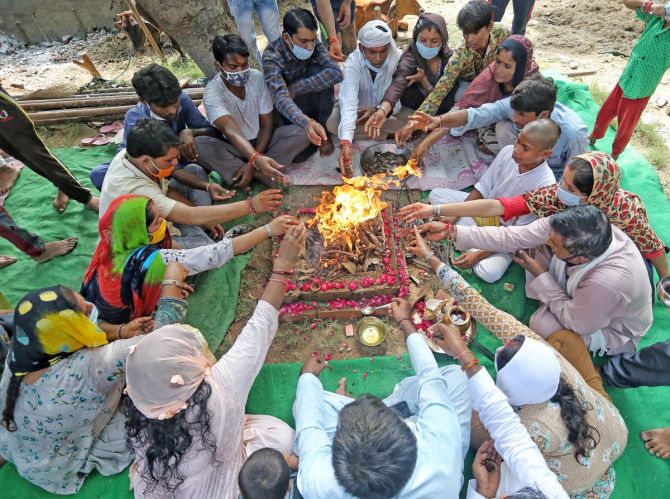
In the Bikaner district their numbers could be one and a half lakh and in Bikaner districts they are settled in Kolayat, Poogal and Khajuwala.
In Sriganganagar, Jalore, Anupgarh, Jalore and Pokhran some 70,000 migrants had come after the 1971 war.
On Tuesday, a day after the Citizenship (Amendment) Act Rules 2024 were notified easing the process for acquiring Indian citizenship belonging to the six minority faiths who immigrated to India before 2014, a large number of migrants browsed the dedicated portal to enable them file their documents.
"The CAA is a welcome gift to the people who faced persecution at the hands of the majority in Pakistan. But the condition of December 31, 2014, put up in the CAA would mean that out of the 35,000 migrants awaiting citizenship, some 60 percent of the 35,000 who migrated to India with valid travel documents will not be granted citizenship. Our organization would now fight for equal opportunities for those who migrated after 2014 so that the could also become citizens" said Hemji Koli, a migrant, who is a qualified male nurse from Pakistan.
Koli said there are over 250 Koli families living in ARS in Jodhpur, who would be deprived of citizenship even after a long wait because of the year 2014 condition.
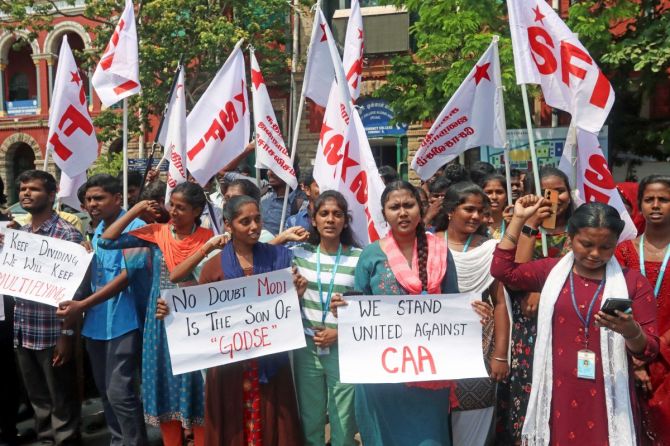
"Having been living in India for eight years after leaving our belongings in Pakistan we thought that the CAA would end our ordeal. But the 2014 condition would mean the journey will have to continue. The Union government should review the CAA and straightaway give us citizenship on humanitarian grounds," said Koli.
"The persecution of the Hindus were even opposed by several human rights organization in Pakistan and in several cases the judiciary, on a plea made by various organization ordered the release of the bonded labourers from the clutches of the rich.
"Some women organisations in Pakistan took up the forced conversion of Hindu women and it was because of their (Pakistani women) the Hindu women are enlightened now and oppose forced conversions and persecution. But given the first opportunity, they would like to cross over to India" said Naryan Bareth, a senior journalist, formerly of the BBC, who also served as the Rajasthan government's Information Commissioner.
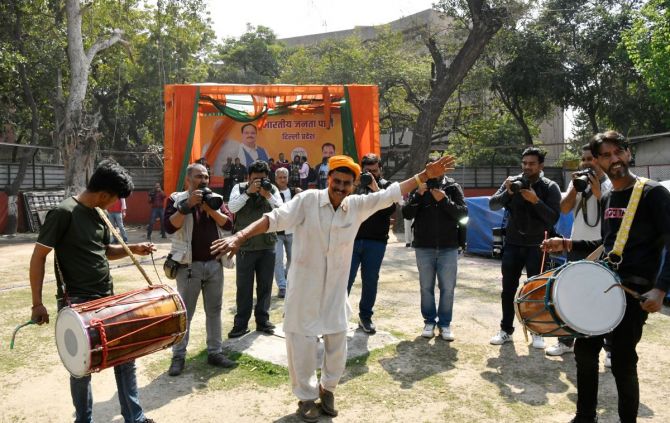
But the Sodha Rajputs who own large land parcels and are big-time agriculturists did not migrate to India.
They enjoy the status of big landlords and are moneyed people, who employ the poor Dalits in Pakistan.
The Sodha Rajputs however find it difficult to find a match for their daughters and often look to India to find a suitable groom.
Apart from the Sodha Rajputs, a large number of Maheshwaris and Brahmins also stayed back in Pakistan.
Doctor couple Ashok and Nirmala Maheshwari, who migrated from Pakistan live happily in Jaipur now.
They got their Indian citizenship and now cast their votes in India. The last vote that they cast in Pakistan was in the year 2013.
The Maheshwaris left Hyderabad (Sindh) in Pakistan over alleged religious persecution and came to India with their three children in 2014 on a visitor's visa to never return.
The doctor couple welcomed the CAA and said that with the CAA in force more Maheshwaris and also Brahmins would now come to settle down in India.
"Now, I foresee a large number of people from Sindh province opting to migrate to India as they would be granted citizenship with an easy process. The CAA announcement was greeted in Pakistan by the Hindus as much as we welcomed it," said Bal Chand Bheel, a labourer in Jodhpur.
Feature Presentation: Rajesh Alva/Rediff.com


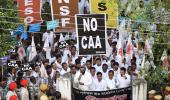









 © 2025
© 2025